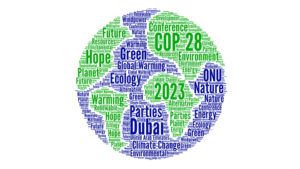More bumps on the road to COP28 have surfaced for the United Arab Emirates (UAE), as the host nation comes under pressure to confirm climate activists will not face arrest, while dealing with revelations about a decade’s worth of hidden methane emissions.
In positive news, Brazil’s government expects Congress to approve a series of energy transition-related bills in the next 100 days, which should boost the country’s decarbonisation credentials at the upcoming COP28 climate summit, an official told Reuters on 18 August.
The package of bills are set to include projects aimed at increasing the use of renewable fuels and regulating related sectors, such as offshore wind farms.
In an embarrassing exposé for the UAE, it failed to report its emissions of the powerful greenhouse gas methane to the UN for almost a decade, The Guardian revealed on 17 August.
Its state oil company, Adnoc, whose chief executive, Sultan Al Jaber, controversially will preside over the climate summit, has also set itself a methane leak target far higher than the level it claims it has already reached.
Al Jaber recently urged countries and companies to be “brutally honest” about the inadequacy of global action to fight the climate crisis.
Critics say the revelations, and the UAE’s huge planned expansion of oil and gas production against scientific advice, show the “opposite of leadership” and undermine Al Jaber’s credibility.
Arrest risk
On 1 August the United Arab Emirates said it will allow environmental activists to “make their voices heard” and peacefully assemble at this year’s UN climate talks.
The announcement was made in a joint statement with the United Nations Framework Convention on Climate Change (UNFCCC).
“In line with UNFCCC guidelines and adherence to international human rights norms and principles, there will be space available for climate activists to assemble peacefully and make their voices heard,” the statement said.
However, by 11 August, the Financial Times reported pressure is mounting on the UK government to obtain assurances from the UAE that Britons who stage protests in Dubai around the COP28 UN climate summit this autumn will not face arrest.
British human-rights barristers have written to foreign secretary James Cleverly demanding he seek an undertaking from the Emirati authorities affirming the rights and safety of UK citizens travelling to the UAE to engage in peaceful demonstrations.
Finally, in more bad news for the host nation, a comprehensive list of “touchy and sensitive issues” for the UAE was revealed in a document leaked to The Guardian, the paper reported on 1 August.
The document sets out the government-approved “strategic messages” to be used in response to media requests about the issues, which range from the UAE’s increasing production of oil and gas to people trafficking.
The document begins with three pages of “Cop28 UAE key messages” and “narrative points”. These contain no references to fossil fuels, oil or gas but do mention renewable energy and hydrogen.
